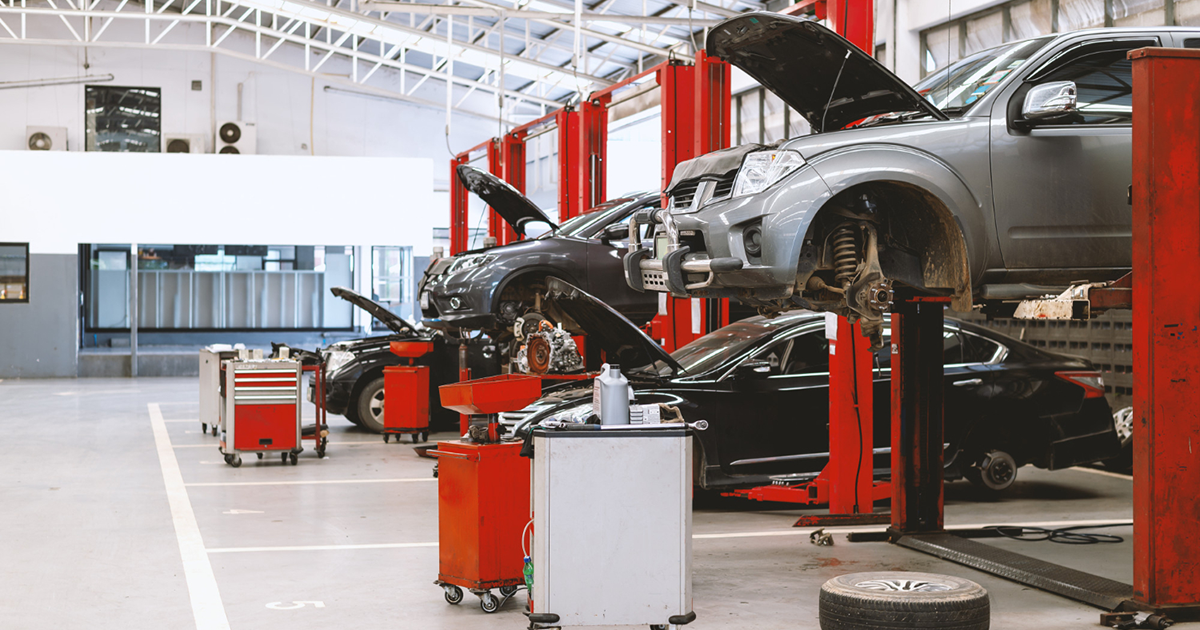
Introduction to the Auto Repair Industry
The auto repair industry is undergoing a transformation unlike any we’ve seen before. As vehicles become more advanced, the way we maintain and repair them is evolving too. From cutting-edge technology to growing awareness about sustainability, several key developments are shaping the future of automotive care. Whether you’re a car owner or a professional in the field, staying informed about these changes can be vital for your next vehicle service experience. Let’s dive into the leading developments that are driving this dynamic industry forward!
Advancements in Technology
Technology is reshaping the auto repair landscape at an unprecedented pace. Advanced diagnostic tools, now equipped with artificial intelligence, allow technicians to pinpoint issues more accurately than ever before.
With the rise of IoT (Internet of Things), vehicles can communicate their health status directly to service centers. This means repairs can be preemptive rather than reactive.
Moreover, augmented reality (AR) is becoming a game-changer in training and repairing processes. Technicians can visualize complex systems through AR glasses, enhancing precision during repairs.
Mobile apps are also transforming customer interactions. They provide real-time updates on vehicle status and facilitate seamless scheduling for services.
These advancements not only streamline operations but significantly enhance customer experience by reducing downtime and improving reliability in service delivery.
Increased Focus on Sustainability
The auto repair industry is witnessing a significant shift towards sustainability. Many shops are adopting eco-friendly practices to reduce their environmental footprint. This includes using biodegradable products and recycling materials whenever possible.
Automakers are also playing their part by prioritizing sustainable manufacturing processes. They’re designing vehicles with recyclable parts and promoting energy-efficient technologies that help conserve resources.
Additionally, consumer demand for greener options increases as awareness around climate change grows. Customers are now seeking out service providers who share these values, effectively pushing the industry toward more responsible practices.
Workshops are investing in training programs to educate technicians on sustainable methods. Not only does this align them with modern standards, but it also enhances their appeal to environmentally conscious consumers.
This focus on sustainability isn’t just a trend; it’s becoming an essential aspect of running a successful auto repair business today.
Growth of Electric and Hybrid Vehicles
The auto repair industry is experiencing a significant shift with the rise of electric and hybrid vehicles. More consumers are choosing these greener options, driven by environmental concerns and cost savings on fuel.
This transition requires specialized knowledge for mechanics. Technicians must now familiarize themselves with high-voltage systems, battery management, and regenerative braking technologies. Continuous training is essential to keep up with evolving technology.
Moreover, as manufacturers ramp up production of electric models, the demand for skilled technicians will only grow. This creates new job opportunities in a rapidly changing landscape.
Repair shops are also adapting their services to accommodate this market shift. Investing in advanced diagnostic tools will become crucial for accurately diagnosing issues unique to electric vehicles.
As we look ahead, the integration of electric and hybrid vehicles into everyday life is reshaping how repair businesses operate. Adapting to these changes can lead to sustainable growth within the sector.
Shift Towards Digital and Remote Services
The auto repair industry is embracing digital transformation at an unprecedented pace. More shops are implementing online booking systems, allowing customers to schedule appointments with ease. This shift eliminates the need for lengthy phone calls and waiting on hold.
Remote diagnostics is another game changer. With advancements in technology, mechanics can now assess vehicle issues through mobile apps or connected devices. This capability saves time and enhances customer service by providing quicker solutions.
Video consultations have also gained traction. Customers can connect directly with technicians to discuss problems visually. It adds a personal touch while streamlining communication.
Additionally, payment options have evolved significantly. Digital wallets and contactless payments offer convenience and security, making transactions smoother than ever before.
These developments reflect a broader trend toward efficiency and accessibility in the auto repair sector, meeting modern consumer expectations head-on.
Impact of COVID-19 on the Auto Repair Industry
The COVID-19 pandemic brought unprecedented challenges to the auto repair industry. With lockdowns and social distancing measures in place, many shops faced temporary closures or reduced staff.
Consumers hesitated to leave their homes, resulting in a significant drop in vehicle maintenance visits. This shift forced many businesses to adapt quickly, incorporating safety protocols and contactless services.
As people turned to online platforms for information, auto repair shops began enhancing their digital presence. Websites that offered easy scheduling options gained popularity among customers seeking convenience amid uncertainty.
Additionally, supply chain disruptions impacted parts availability. Many repair centers had to manage delays while maintaining customer trust through transparent communication regarding wait times and service updates.
This period of adaptation has reshaped customer expectations and highlighted the importance of flexibility within the industry.
Future Predictions and Opportunities
The future of the auto repair industry promises exciting transformations. As technology continues to advance, shops will increasingly adopt artificial intelligence and machine learning. These innovations can enhance diagnostics and streamline operations.
Electric vehicles (EVs) are set to dominate the roads in coming years. This shift opens new doors for specialized training and services tailored specifically for EV maintenance and repairs.
Sustainability will also play a crucial role in shaping business practices. Eco-friendly materials and processes are becoming essential as consumers demand greener options.
Remote vehicle monitoring systems will pave the way for proactive maintenance, allowing technicians to address issues before they escalate.
As consumer preferences evolve, adaptability will be vital. Shops that embrace these shifts stand to gain significantly from emerging markets, ensuring long-term success amidst change.
Conclusion
The auto repair industry is experiencing significant changes that reflect broader societal trends. Technological advancements are reshaping how repairs are conducted, making processes faster and more efficient. Sustainability has become a key focus, with shops adopting eco-friendly practices to cater to environmentally conscious consumers.
As electric and hybrid vehicles gain popularity, the need for specialized knowledge in their maintenance continues to rise. The shift towards digital services offers convenience, allowing customers to schedule appointments or receive updates remotely. Meanwhile, the COVID-19 pandemic has accelerated many of these transformations, pushing businesses to adapt quickly.
Looking ahead, there’s ample opportunity within the industry for those willing to embrace change and innovate. As new challenges arise, so do avenues for growth. The landscape will keep evolving as technology advances and consumer preferences shift.
Staying informed about these developments is crucial for both professionals in the field and car owners alike. Understanding where the auto repair industry is headed can help navigate this dynamic environment effectively.
